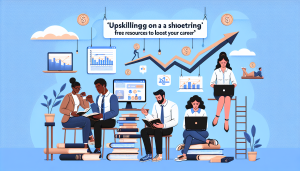The Rise of Micro-Credentials: Are They the New College Degree?
The Rise of Micro-Credentials: Are They the New College Degree?
The traditional college degree has long been seen as the key to a successful career. But with the ever-changing job market and rising costs of higher education, many are starting to question if a four-year degree is really worth it. In recent years, a new trend has emerged – micro-credentials. These small, specialized certifications are gaining popularity and are being touted as the future of education. But are they really a substitute for a college degree? Let’s dive deeper into the rise of micro-credentials and their impact on the world of education and employment.
When we think of a college degree, we often picture a four-year program with courses covering a wide range of subjects. This traditional model of education has been the norm for decades and has been the standard for most professional careers. However, with the rapid advancements in technology and constantly evolving job requirements, the traditional college degree may no longer be enough to secure a job in today’s competitive market.
This is where micro-credentials come in. These small, stackable certifications are designed to teach specific skills and knowledge that are highly relevant to a particular job or industry. Unlike a college degree, micro-credentials focus on practical and hands-on learning rather than theory and broad academic subjects. They are also much more affordable and can be completed in a fraction of the time.
So, what exactly are micro-credentials? They can come in various forms such as digital badges, certificates, or certifications. They are often offered by online learning platforms, such as Coursera, Udemy, and LinkedIn Learning, or by professional organizations and employers. The content and delivery of these programs are highly flexible, allowing individuals to learn at their own pace and even while working full-time.
One of the biggest advantages of micro-credentials is their relevance to today’s job market. As mentioned earlier, the traditional college degree may not always provide the necessary skills and knowledge needed for a particular job. Employers are now looking for candidates with specialized skills and practical experience, and micro-credentials offer just that. They are also a great way for individuals to upskill or reskill in a specific area without having to go through a full degree program.
Another benefit of micro-credentials is their affordability. With the rising costs of higher education, many individuals are burdened with student loans and debt. Micro-credentials, on the other hand, are much more affordable and accessible. In some cases, they are even offered for free or at a lower cost compared to a traditional degree program.
However, there are also concerns regarding the credibility and recognition of micro-credentials. As they are relatively new, not all employers may be familiar with them or place the same value on them as a college degree. This can be a roadblock for individuals looking to use their micro-credentials as a substitute for a degree.
So, are micro-credentials really the new college degree? While they offer many benefits, they are not a complete replacement for a traditional degree. A college degree still holds value and is often required for higher level positions or in certain industries. Micro-credentials can be seen as a complementary tool to a degree, providing individuals with specialized skills and knowledge that can give them an edge in the job market.
In conclusion, the rise of micro-credentials is a testament to the ever-evolving landscape of education and employment. They offer a more affordable and relevant alternative to a traditional college degree, but they are not a complete substitute. It’s important for individuals to carefully evaluate their goals and career path before deciding between a degree and micro-credentials. After all, the key to success is not just having a degree or a certification, but constantly learning and adapting to the fast-paced world we live in.










